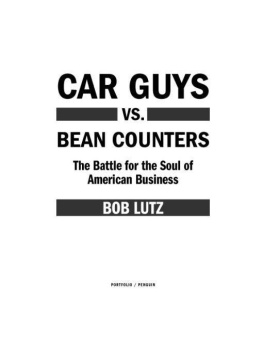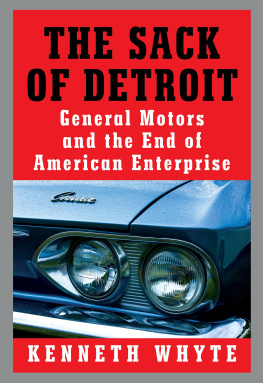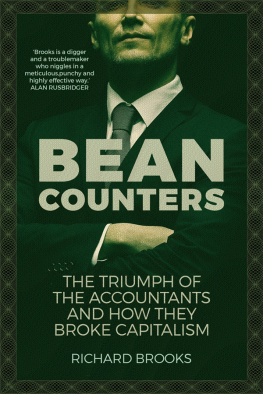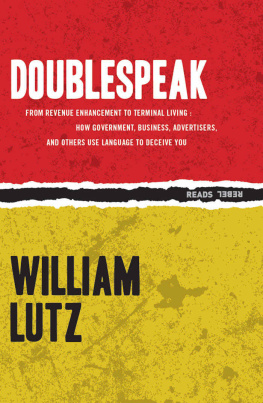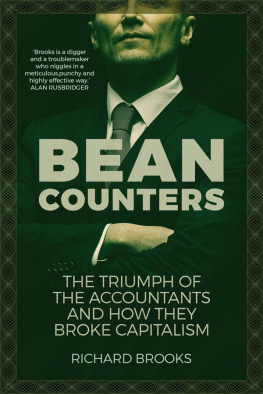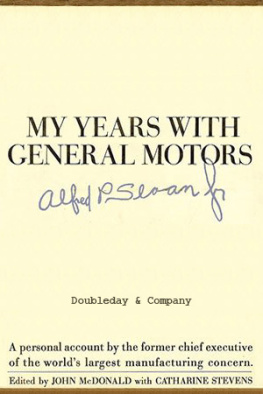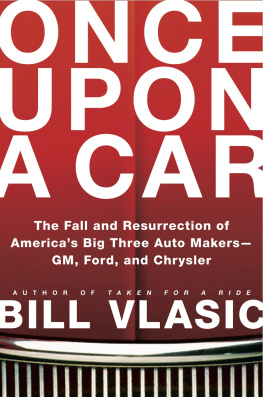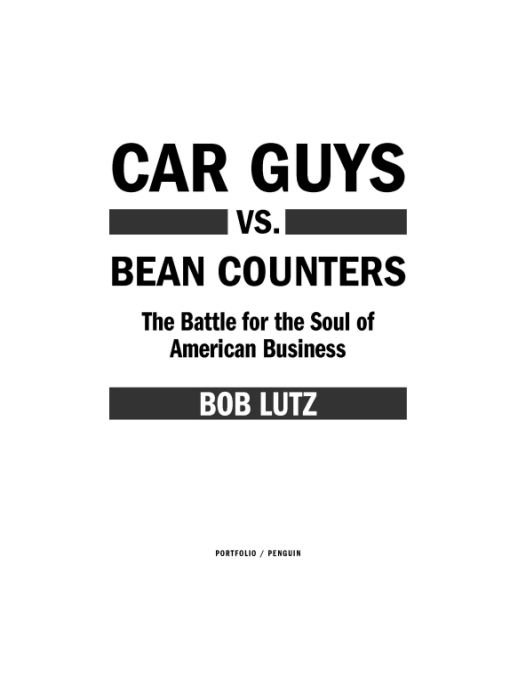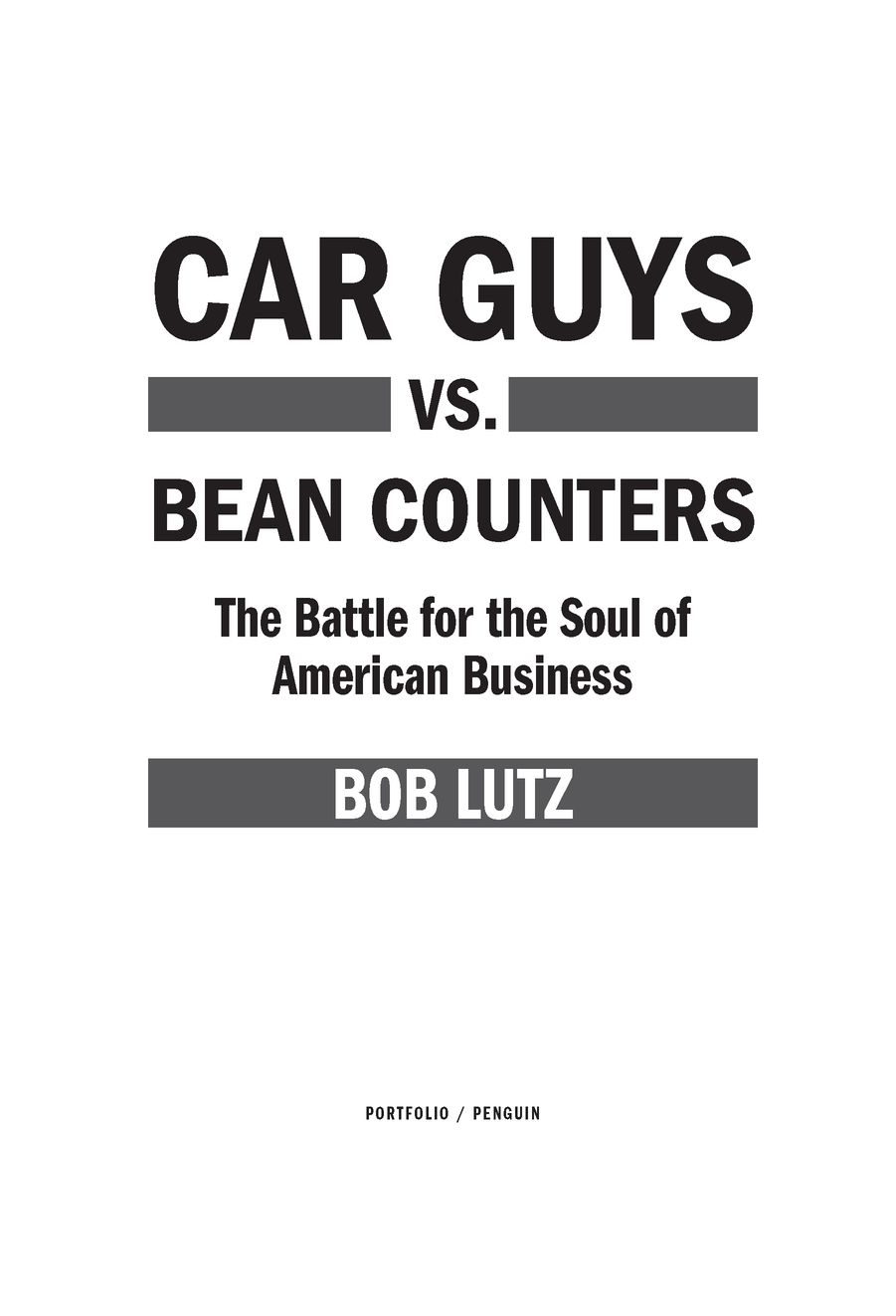Table of Contents
This book is dedicated to the hardworking men and women, at all levels, hourly and salaried, in the domestic U.S. automobile industry. The problems, mostly, were not your fault!
Preface
IT WAS IN 1979 IN THE UNITED KINGDOM. I HAD JUST BEEN ELEVATED TO president of Ford Europe and was conducting my first monthly quality meeting.
Fords quality was about average for Europe at the time, but we were having a major problem with our UK-built four-cylinder engines: camshafts (an essential part that controls the valves) were wearing out at a totally unacceptable rate. Some camshafts failed after as little as 10,000 miles, few lasted more than 15,000 miles, and the bulk of the repeat failures occurred soon after the expiration of the then-prevalent 12,000-mile warranty.
I asked what we were going to do to achieve industry-standard durability on camshafts. Manufacturing and Engineering had a number of solutions, all requiring some increase in parts cost and a nominal investment in equipment. I authorized these on the spot, and emphasized the need for speed in incorporating the changes.
End of story? Not quite! The finance guys piped up and informed me that I had, by my hasty decision, just blown a roughly $50 million hole in the profit forecast. It seems that was the amount of profit the Parts and Service organization was reaping by shipping an endless stream of shoddy, soft camshafts to hundreds of thousands of customers who had no other choice... theyve got to buy them. Yes, they had no choice... until their next vehicle purchase.
I ultimately prevailed, but I paid for it the rest of my time at Ford, gaining the reputation as a good product guy, but hes not bottom-line focused, not a sound businessman. This philosophy of treating the customer as a hapless victim to be exploited was endemic in American corporations, and it cost us dearly. I contend that I wasnt the lousy businessman.The MBA bean counters who were perfectly willing to sacrifice goodwill and reputation for a lousy $50 million in ill-gotten profit were the villains. And eventually the chickens came home to roost.
This book is about what happened to Americas competitiveness, and why. Most of the examples and observations are from the automobile sector, for the simple reason that thats what I know best, and I was a participant in the decades-long decline of General Motors. But the creeping malignancy that transformed the once all-powerful, world-dominating American economy from one that produced and exported to one that trades and imports is now common to all or most sectors.
It really boils down to a matter of focus, priorities, and business philosophy. Leaders who are predominantly motivated by financial reward, who bake that reward into the business plan and then manipulate all other variables to hit that number, will usually not hit the number, or, if they do, then only once. But the enterprise that is focused on excellence and on providing superior value will see revenue materialize and grow, and will be rewarded with good profit. Is profit an integral part of the business equation and a God-given right, no matter how compromised the product or service? Or is the financial result an unpredictable reward, bestowed upon the business by satisfied customers?
To some restaurant owners, people booking reservations weeks in advance is a sign that we did something wrong. Perhaps the food is too good... best to back off a bit on the quality of the meat and produce. Ease off on the butter! Well reduce cost, improve margins! And the customers, presumably, will keep coming, right?
But to other owners, the excess demand is a sign of success, of the formula working, of customers appreciating the value of their efforts. In this case, profit can be increased by selective higher pricing to keep the waiting times reasonable while gaining a premium reputation.Want to guess which restaurant will be in business longer, and be more successful?
There is a GM car, produced worldwide, which is hugely successful wherever it is produced and sold. It has great styling, is larger than its direct competitors, and generally exceeds customer expectations. It is profitable in a vehicle category in which that status is rarely achieved. A cause for celebration, of joy at having found the winning formula? Yes, but there are factions who complain that we overachieved; the car is better and richer than it needs to be, so lets correct back to the centerline with the next model. Listening to those voices would put GM back on the downward slope.The drive to reduce cost, skimp a bit on service, ruthlessly pursue quarterly earnings targets no matter what the negative consequences has hurt American business from automobiles to appliances, as well as the service industries.
My premise is that the trend is reversible.We dont have to be a nation of importers, bond traders, and venture capitalists who have no interest in the long-term viability of the company as long as they have a surefire, timely exit strategy.
As an industrial power, the United States has a historic window. Exchange rates are in our favor, labor rates are, by most standards, competitive. We still have ingenuity, initiative, and a deep well of technological innovation.
Its time to stop the dominance of the number crunchers, living in their perfect, predictable, financially projected world (who fail, time and again), and give the reins to the product guys (of either gender), those with vision and passion for the customers and their product or service.
It applies in any business. Shoemakers should be run by shoe guys, and software firms by software guys, and supermarkets by supermarket guys. With the advice and support of their bean counters, absolutely, but with the final word going to those who live and breathe the customer experience. Passion and drive for excellence will win over the computer-like, dispassionate, analysis-driven philosophy every time.
The Beginning
A CHAUFFEUR-DRIVEN CADILLAC GLIDED SILENTLY TO THE CURB IN front of the Ann Arbor office of Exide Technologies, the worlds largest producer of lead-acid batteries. I was CEO and had a good view of the front from my office with its cigar-friendly sliding glass door.
The chauffeur opened the passenger-side door, and a very tall man unfolded his six-foot-six-inch frame and walked toward the main entrance. Morning sun silhouetted his broad shoulders, and inside my office, we were ready for him: coffee brewed, muffins arrayed, orange juice poured.
This was important company, for the tall stranger was none other than former Duke University basketball player G. Richard (Rick) Wagoner, then president and CEO of General Motors. The scene of his arrival at my modest office complex is forever etched in my memory, for it marked the end of a long, convoluted rapprochement that had developed in fits and starts. It also signaled the beginning of a presumed three-year relationship with GM that was to last almost nine years and would prove to be both the most rewarding as well as the most frustrating epoch in my career.
I was, at this juncture in 2001, nearing seventy. After retiring at sixty-six as vice chairman of Chrysler in 1998, Id written my book


